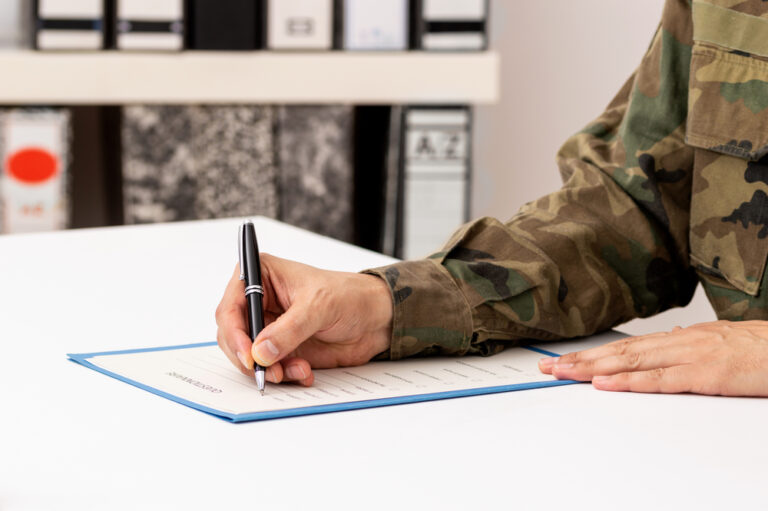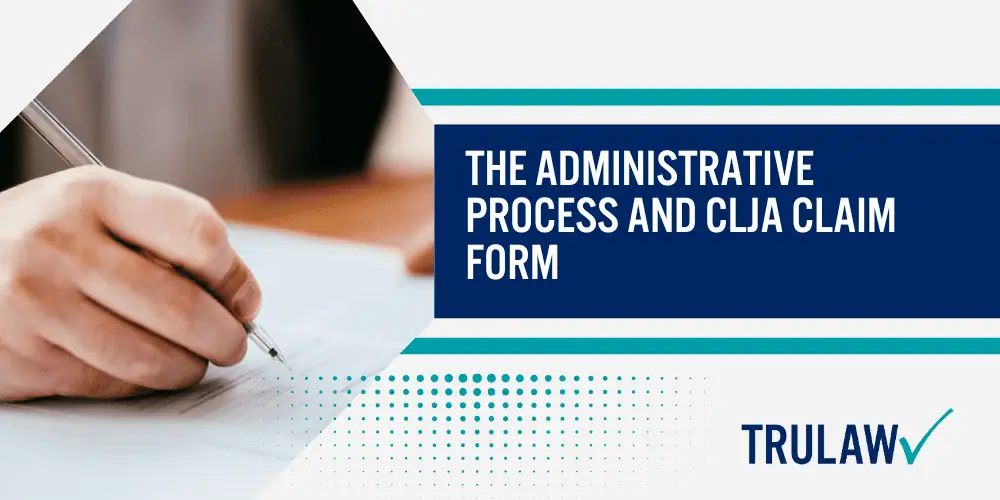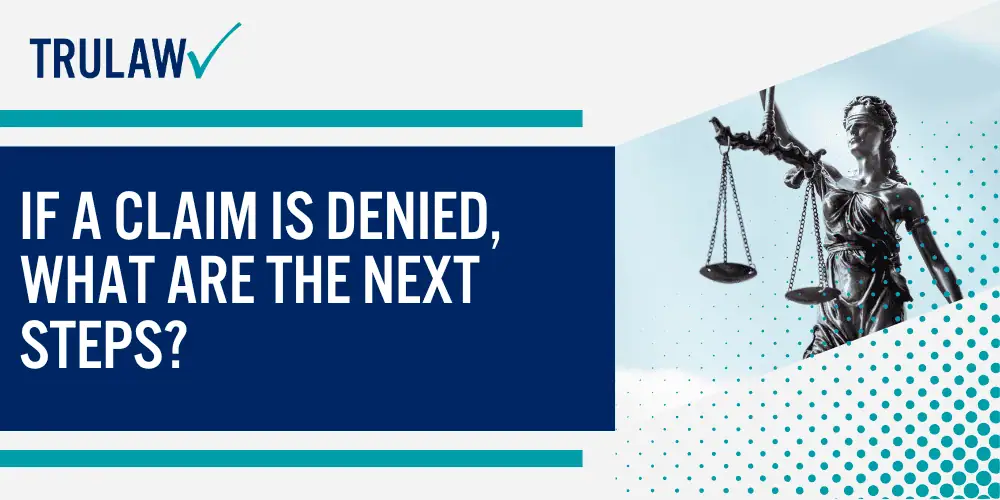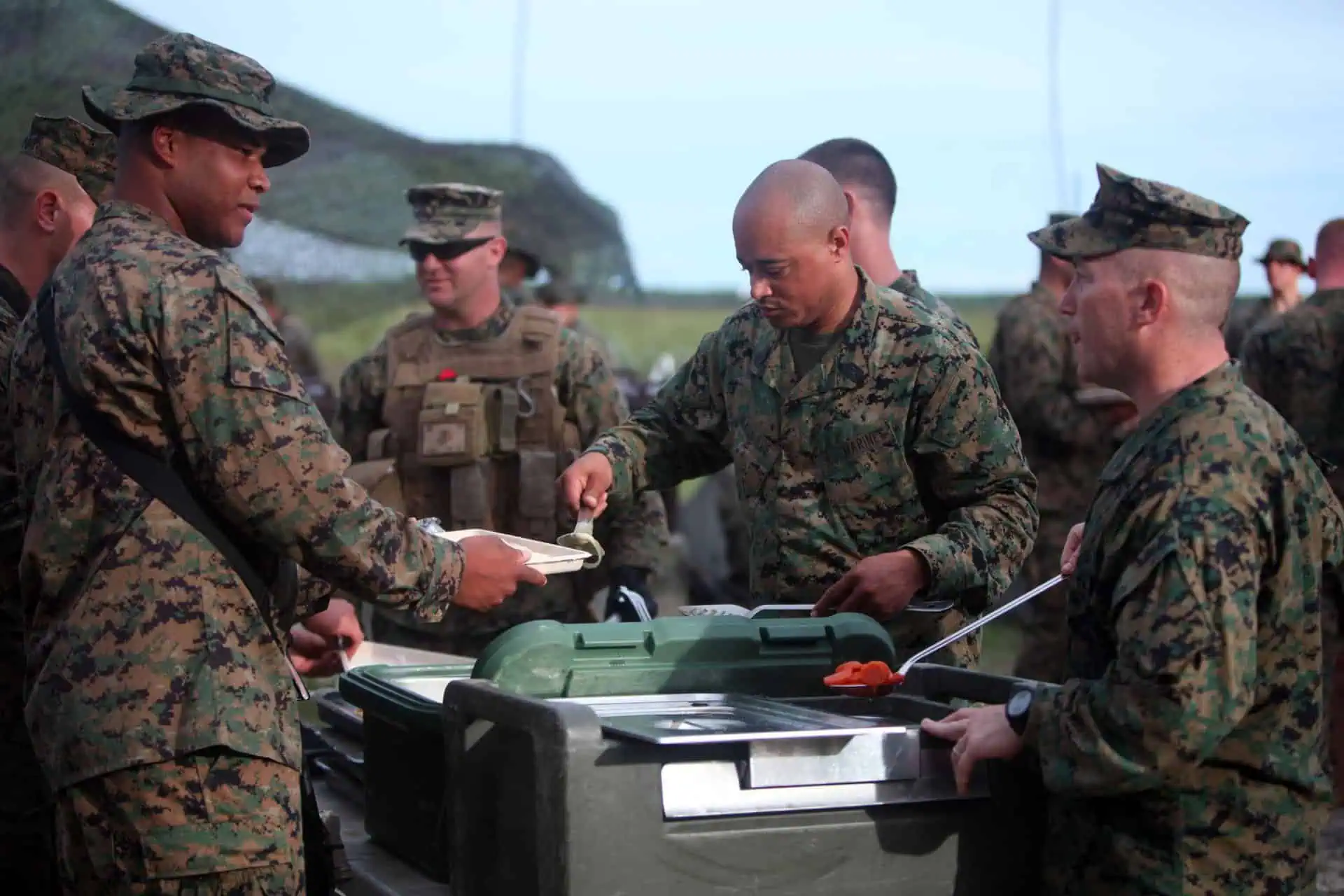What is the Process of Filing a Camp Lejeune Contamination Claim?
- Last Updated: June 12th, 2025

Attorney Jessica Paluch-Hoerman, founder of TruLaw, has over 28 years of experience as a personal injury and mass tort attorney, and previously worked as an international tax attorney at Deloitte. Jessie collaborates with attorneys nationwide — enabling her to share reliable, up-to-date legal information with our readers.
Legally Reviewed
This article has been written and reviewed for legal accuracy and clarity by the team of writers and legal experts at TruLaw and is as accurate as possible. This content should not be taken as legal advice from an attorney. If you would like to learn more about our owner and experienced injury lawyer, Jessie Paluch, you can do so here.
Fact-Checked
TruLaw does everything possible to make sure the information in this article is up to date and accurate. If you need specific legal advice about your case, contact us by using the chat on the bottom of this page. This article should not be taken as advice from an attorney.
What is the Process of Filing a Camp Lejeune Contamination Claim?

The process to file a Camp Lejeune Water Contamination claim is unique from any other mass tort litigation.
It is part administrative and part judicial, requiring a keen oversight from lawyers handling cases for victims.
In this blog, we discuss the administrative portion of the filing process and the use of the Camp Lejeune Claim Form.
Table of Contents
The Administrative Process and CLJA Claim Form
The administrative process for Camp Lejeune Water Contamination claims begins with the filing of a Camp Lejeune Justice Act (CLJA) Claim Form.
A claim must be filed within two years from the date the PACT Act was signed: August 10, 2022.
The administrative process is handled by the Navy, particularly the Office of the Judge Advocate General (JAG) of the Navy’s Tort Claims Unit (TCU).
While the Navy provides an address to send the CLJA Claim Form, it is highly recommended that qualified individuals utilize the online option, and email the JAG a .csv file of the relevant information, as detailed below.

After filing the CLJA Claim Form, the qualified individual (if filing pro se) or the authorized agent of the qualified individual (likely a Camp Lejeune lawyer) will receive an email acknowledging receipt of the claim or an email noting why the claim was not valid.
Shortly after perfecting the claim, the TCU will provide a claim number for future reference.
It is currently unknown whether the TCU will attempt to adjudicate any claims at the administrative level.
The TCU has 6 months from the date of filing to adjudicate or deny the claim.
If the TCU denies the claim, a Camp Lejeune lawyer will likely file suit in the Eastern District of North Carolina.
The Camp Lejeune Justice Act (CLJA) Claim Form
While most civil lawsuits require the plaintiff to prove their claim by a preponderance of evidence, the Camp Lejeune Justice Act (CLJA) was written to give the victims of contamination the benefit of the doubt.
Instead, the Camp Lejeune statute adopts an “equipoise” standard.
Equipoise requires only that the plaintiff prove that contamination is as likely as any other reason for the plaintiffś diagnosis.
In keeping with the Equipoise requirement, the CLJA claim form asks for basic information about the dates the service member and-or civilian was stationed or working at Camp Lejeune.
In addition, the claim form must include the signature of an authorized agent who can vouch for the information provided on the form (unless the plaintiff is filing pro se).
This claim also requires that the plaintiff include a specific monetary demand amount.
There are many pitfalls that could hurt a plaintiff’s claim for compensation if they do not hire an experienced lawyer to assist with the filing of the claim form and the complaint as needed.
Furthermore, gathering information from social media, friends or family members rather than hiring a lawyer to assist you could ruin the protection of attorney-client privilege.
One of the biggest issues is how much to demand on the CLJA form.
It is important that claimants discuss this issue with an expert, as the Navy will treat this number as a “cap” on any future compensation, and will not provide any compensation over the requested amount.
For victims of Camp Lejeune Water Contamination, it is highly recommended that you seek legal representation to help with the filing of your claim form so that it is completed correctly and maximum compensation is sought for your injuries and damages.
If a Claim is Denied, What are the Next Steps?
If a client’s claim is denied in the administrative portion of the claims process, the plaintiff has a right to file a claim with the United States District Court for the Eastern District of North Carolina.
The original Camp Lejeune Claim form and the documents that prove diagnosis and military record are likely to be sufficient in proving general causation.
But, to recover damages in a personal injury lawsuit, the plaintiff still must prove that it is just as likely that the contamination at Camp Lejeune caused this specific injury.
This is called specific causation.
We don’t yet have guidance from the court regarding how specific causation will be proven.
It is likely that each diagnosis will have its own list of questions that will be used to determine the strength of association with the contamination.
For example, it is likely that individuals diagnosed with lung disease, which is a presumptive disease, will be treated differently based on whether they were a “smoker”.

Camp Lejuene lawyers will hire medical experts to determine which clients meet the standard of equipose to prove specific causation.
Visit this Webpage and join our community on Facebook for updates on the Camp Lejeune Contamination Filing Process.
As more information comes out about filing Camp Lejeune water contamination claims and the administrative and judicial processes that control them, we will know more about how victims can be compensated for their injuries, average settlement amounts for certain injuries, and any hurdles law firms may encounter in filing claims on behalf of their clients.
As mentioned above, this process is totally unique to the Camp Lejeune Water Contamination Litigation and we will discover more every day on how to properly handle these cases.
If you suffered adverse health issues after being exposed to contaminated water while living at Camp Lejeune in North Carolina, TruLaw can help.
Visit our Camp Lejeune Contaminated Water Lawsuit page and get an instant case assessment.

Managing Attorney & Owner
With over 25 years of legal experience, Jessica Paluch-Hoerman is an Illinois lawyer, a CPA, and a mother of three. She spent the first decade of her career working as an international tax attorney at Deloitte.
In 2009, Jessie co-founded her own law firm with her husband – which has scaled to over 30 employees since its conception.
In 2016, Jessie founded TruLaw, which allows her to collaborate with attorneys and legal experts across the United States on a daily basis. This hypervaluable network of experts is what enables her to share the most reliable, accurate, and up-to-date legal information with our readers!
Additional Camp Lejeune Water Contamination Lawsuit resources on our website:
Here, at TruLaw, we’re committed to helping victims get the justice they deserve.
Alongside our partner law firms, we have successfully collected over $3 Billion in verdicts and settlements on behalf of injured individuals.
Would you like our help?
At TruLaw, we fiercely combat corporations that endanger individuals’ well-being. If you’ve suffered injuries and believe these well-funded entities should be held accountable, we’re here for you.
With TruLaw, you gain access to successful and seasoned lawyers who maximize your chances of success. Our lawyers invest in you—they do not receive a dime until your lawsuit reaches a successful resolution!
AFFF Lawsuit claims are being filed against manufacturers of aqueous film-forming foam (AFFF), commonly used in firefighting.
Claims allege that companies such as 3M, DuPont, and Tyco Fire Products failed to adequately warn users about the potential dangers of AFFF exposure — including increased risks of various cancers and diseases.
Depo Provera Lawsuit claims are being filed by individuals who allege they developed meningioma (a type of brain tumor) after receiving Depo-Provera birth control injections.
A 2024 study found that women using Depo-Provera for at least 1 year are five times more likely to develop meningioma brain tumors compared to those not using the drug.
Suboxone Tooth Decay Lawsuit claims are being filed against Indivior, the manufacturer of Suboxone, a medication used to treat opioid addiction.
Claims allege that Indivior failed to adequately warn users about the potential dangers of severe tooth decay and dental injuries associated with Suboxone’s sublingual film version.
Social Media Harm Lawsuits are being filed against social media companies for allegedly causing mental health issues in children and teens.
Claims allege that companies like Meta, Google, ByteDance, and Snap designed addictive platforms that led to anxiety, depression, and other mental health issues without adequately warning users or parents.
Transvaginal Mesh Lawsuits are being filed against manufacturers of transvaginal mesh products used to treat pelvic organ prolapse (POP) and stress urinary incontinence (SUI).
Claims allege that companies like Ethicon, C.R. Bard, and Boston Scientific failed to adequately warn about potential dangers — including erosion, pain, and infection.
Bair Hugger Warming Blanket Lawsuits involve claims against 3M — alleging their surgical warming blankets caused severe infections and complications (particularly in hip and knee replacement surgeries).
Plaintiffs claim 3M failed to warn about potential risks — despite knowing about increased risk of deep joint infections since 2011.
Baby Formula NEC Lawsuit claims are being filed against manufacturers of cow’s milk-based baby formula products.
Claims allege that companies like Abbott Laboratories (Similac) and Mead Johnson & Company (Enfamil) failed to warn about the increased risk of necrotizing enterocolitis (NEC) in premature infants.
Here, at TruLaw, we’re committed to helping victims get the justice they deserve.
Alongside our partner law firms, we have successfully collected over $3 Billion in verdicts and settlements on behalf of injured individuals.
Would you like our help?
